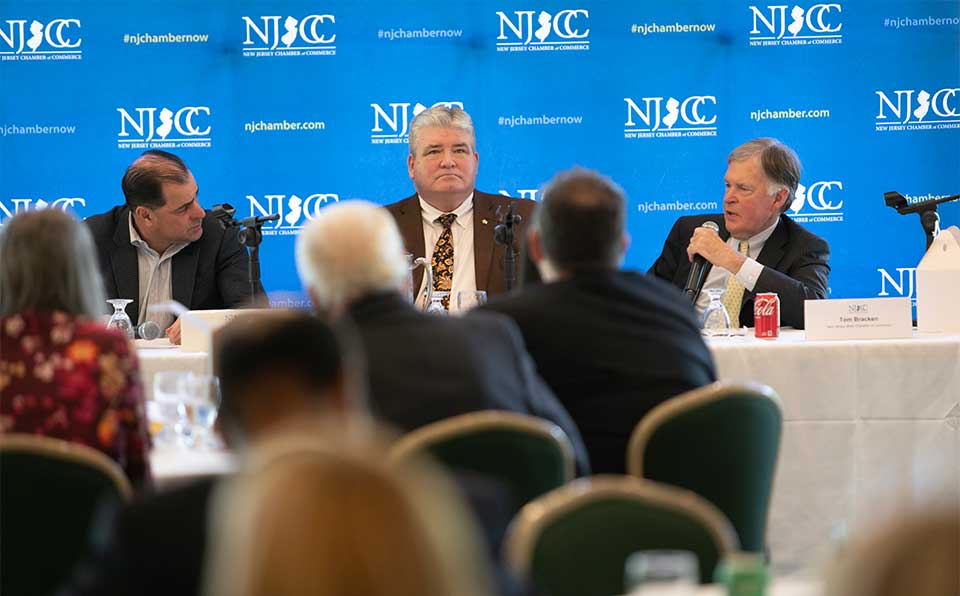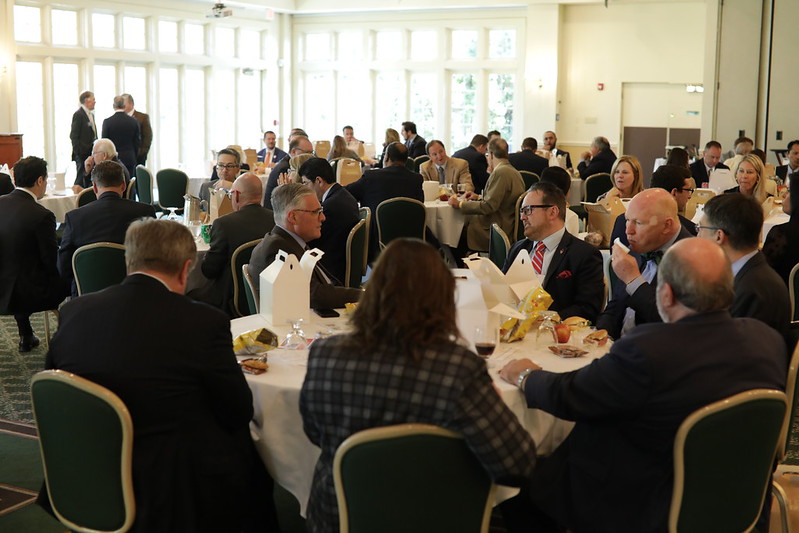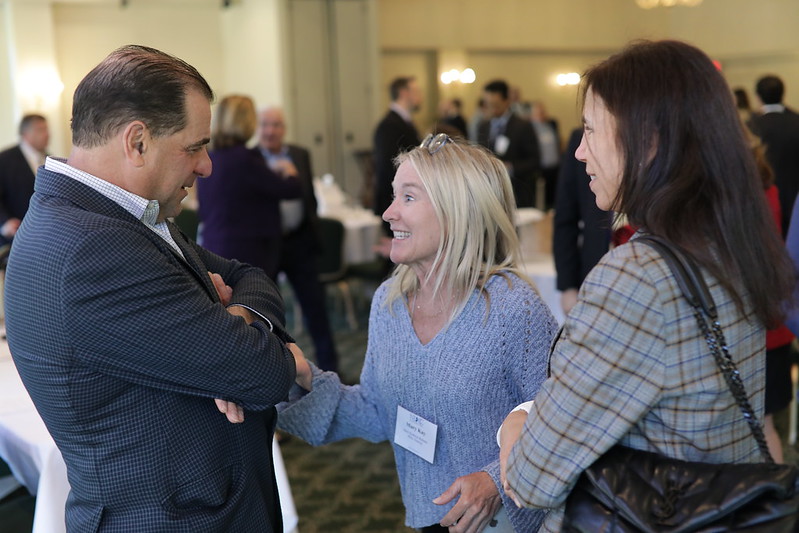State Sen. Paul Sarlo (D), the Senate’s deputy majority leader, and state Sen. Steve Oroho (R), the Republican leader, discussed ways to improve New Jersey’s business climate; how the state should spend its federal pandemic aid; and what will happen when the aid runs out.
The two legislative leaders spoke during the New Jersey Chamber’s May 10 Business Roundtable at Forsgate Country Club in Monroe.
“The state is flush with cash,” Sarlo said. “We have a $10 billion surplus and we have unprecedented federal dollars in our coffers. We have done full pension payments and debt defeasance.”
But, he added, the federal money will eventually run out. “We must be cautious,” Sarlo said. “There is going to be a recovery period. I won’t call it a recession. But there will be a correction. We will have to deal with difficult issues.”
For one thing, Sarlo said, “NJ Transit is going to be $1 billion in the hole.”
Oroho said the Senate Republicans have advanced a plan on how to spend the state’s federal aid. It includes replenishing the state’s Unemployment Insurance fund instead of relying on a payroll tax hike on employers; and immediately ending the 2% surcharge on the state Corporation Business Tax instead of waiting until the end of the year, as the Democrats have proposed.
“I like the idea of making the state (business climate) more competitive” Oroho said. “We have a long way to go.”
Oroho also mentioned a need to index the state’s income tax rates for inflation, and he cautioned against moving too fast on clean energy and relying solely on new energy sources. “I’m all for clean energy,” he said. “But you can’t put all your eggs in one basket.”
Sarlo, meanwhile, said the Democrats are working on improving the state business climate by overhauling the state Corporation Business Tax, and it goes beyond just eliminating the 2% surcharge.
“It will go a long way toward making New Jersey competitive,” Sarlo said. “We have to be cognizant of what Pennsylvania did. They cut corporate taxes.”
Regarding the federal aid, Sarlo said he’d like to see more funds for higher education and school construction, as well as strategic one-time investments in infrastructure and schools. “Those things,” he said, “are on the table.”


